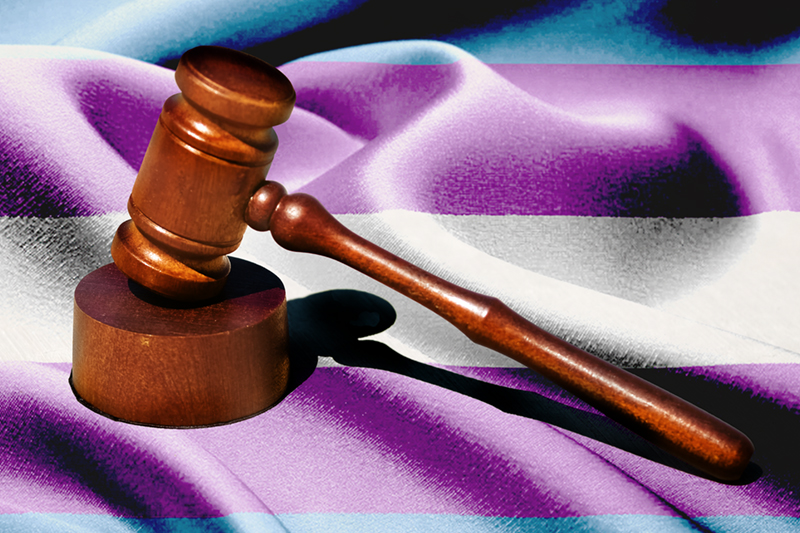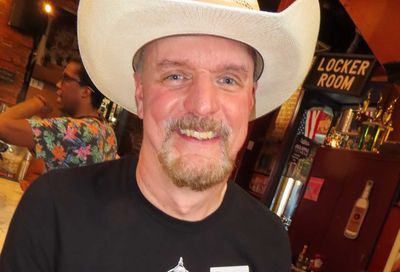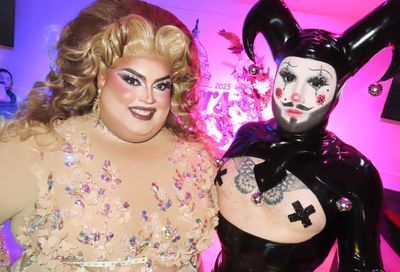San Bernardino County would change how it treats GBTI inmates under proposed settlement
Inmates will be allowed to participate in work and educational programs, and officers will have to undergo sensitivity training

Last week, American Civil Liberties Union announced the terms of a proposed settlement with the San Bernardino County Sheriff’s office that would change how GBTI inmates are treated in the county’s prison system.
The ACLU of Southern California, along with the law firm of Kaye, McLane, Bednarski & Litt, sued on behalf of several inmates in the San Bernardino County Jail system, who alleged, in an amended complaint, that their constitutional rights were infringed when they were discriminated against because of their sexual orientation or gender identity.
Under the current system, all inmates who identify as gay, bisexual, transgender, or intersex are housed in the so-called “Alternative Lifestyle Tank” at the West Valley Detention Center in Rancho Cucamonga.
According to the Los Angeles Times, the inmates at the Alternative Lifestyle Tank claimed they were locked in their cells for up to 23 hours a day, and were banned from participating in the San Bernardino County jail’s job training, educational, drug rehabilitation, religious or community re-entry programs.
The lead plaintiff in the case, Dan McKibben, a former sheriff’s deputy in Indiana, who spent two months at West Valley Detention Center in 2014 for a probation violation. Upon self-identifying as gay, he was housed in the Alternative Lifestyle Tank, where he was kept in his cell an average of 22-and-a-half hours a day.
His repeated requests to participate in a work program — which could have helped him reduce the time he needed to serve on his sentence — were denied, and he witnessed other residents of the Tank being beaten and called derogatory names by sheriff’s deputies.
McKibben died in 2016, but the case has continued in his name. There are 15 other plaintiffs, besides McKibben, who were names in the case, and an estimated 600 people who were housed in the Tank from 2012 to 2018, and who were likely subjected to similar abuses.
The proposed settlement, which calls for significant changes in jail housing, work and educational program availability, staff training, and the establishment of a no-tolerance policy for harassment of GBTI inmates in the jail system, was filed in federal court for the Central District of California.
“Nobody should be forced to choose between their safety and equal treatment while in custody,” ACLU SoCal Staff Attorney Brendan Hamme said in a statement. “We appreciate the county’s commitment to substantially improving its policies and practices.”
Specifically, under that settlement, San Bernardino County would agree to expand housing options for GBTI inmates, lift any restrictions on participation in work, educational, or other re-entry programs, adhere to the aforementioned no-tolerance policy, and establish a committee that must meet regularly with GBTI inmates to discuss the housing and work programs available, as well as hear and follow-up on any complaints alleging discrimination.
The agreement also includes specific changes for the jail’s transgender population, including prohibitions on intentional misgendering, an individualized approach to housing placements for transgender people, and improved access to medical treatment and privacy protections.
Additionally, under the terms of the agreement, San Bernardino County would rename the Alternative Lifestyle Tank at the West Valley Detention Center to the GBTI Unit, and would be required to provide comprehensive training on GBTI issues, as well as sexual abuse and harassment, and the rights of the incarcerated.
The settlement also requires the county to pay $950,000 in damages, which will be divided among class members, and $1.1 million in attorney’s fees incurred by the plaintiffs.
“Over the past 20-plus years of litigation against jails, it has been our experience that jail culture often undermines recognition of inmates’ humanity,” David S. McLane, an attorney with Kaye, McLane, Bednarski & Litt, said in a statement. “This culture had led to a complete disregard for inmates’ fundamental constitutional right to equal treatment. We are pleased that San Bernardino will now be a national example of how jails can provide equality without compromising safety.”
The settlement has not yet been approved by a judge, but a hearing in the case is scheduled for September.
Lynn Price, a transgender woman who is one of the 15 remaining plaintiffs, says she’s happy the county has agreed to change its ways regarding the treatment of sexual minorities within its jail system.
“I was stuck in my cell for all but one or two hours a day,” Price said in a statement. “It felt so lonely and humiliating back then, seeing everyone else out and allowed to eat together, talk with each other. I’m relieved that San Bernardino has promised to create more humane conditions for people housed in the unit.”
Support Metro Weekly’s Journalism
These are challenging times for news organizations. And yet it’s crucial we stay active and provide vital resources and information to both our local readers and the world. So won’t you please take a moment and consider supporting Metro Weekly with a membership? For as little as $5 a month, you can help ensure Metro Weekly magazine and MetroWeekly.com remain free, viable resources as we provide the best, most diverse, culturally-resonant LGBTQ coverage in both the D.C. region and around the world. Memberships come with exclusive perks and discounts, your own personal digital delivery of each week’s magazine (and an archive), access to our Member's Lounge when it launches this fall, and exclusive members-only items like Metro Weekly Membership Mugs and Tote Bags! Check out all our membership levels here and please join us today!

























You must be logged in to post a comment.